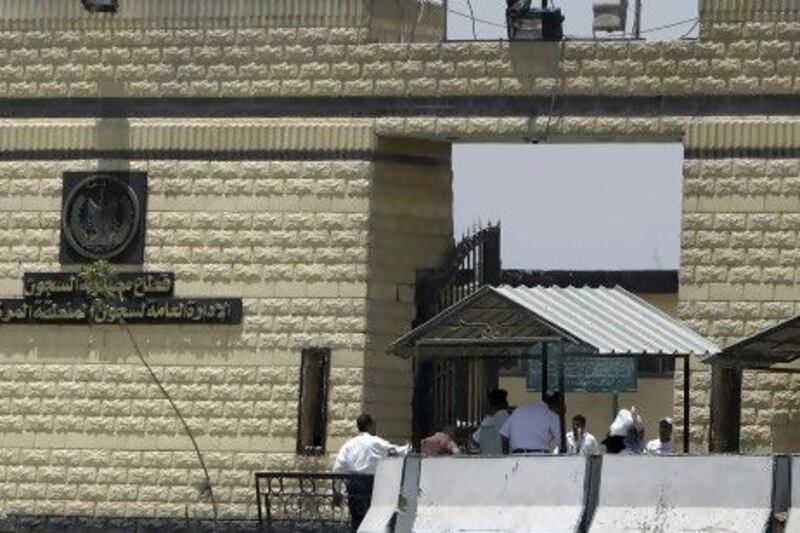CAIRO // A former military officer who was imprisoned in 2002 for Islamist extremism was among the eight men arrested on October 25 for involvement in an alleged "terror cell" in Cairo.
The emergence of a group in Cairo with alleged plans to carry out violence in Egypt represents a marked escalation of the activities of militant Islamists inside the country. That one of the group's leaders was a former military officer echoed with Egypt's history of Islamist attacks. President Anwar Sadat was killed during a parade by a group of army officers who belonged to an extremist group in 1981.
It also suggests that some groups on the fringes of the Islamist spectrum still consider the government a target for attacks, even though the new president was a long-time leader of the Islamist Muslim Brotherhood group.
Tarek Abu El Azm, the former officer, spent nine years in an unknown Egyptian prison and was released last year as part of the government's amnesty for prisoners who had served at least half their sentence or had court orders for their release, said Magdi Salem, one of the lawyers representing the men.
Other prisoners have been released by presidential pardon or through appeals.
Nizar Ghurab, another lawyer for the defendants, said the men had only been charged with belonging to an illegal group - Gund Allah, or God's Army - and arms smuggling.
"The public prosecution is continuing their investigation and more charges may come," he said.
But, Mr Salem said investigators were also examining evidence that allegedly pointed to plans for violence in Egypt, including assassinating President Mohammed Morsi and blowing up the interior ministry in Cairo.
Mr Salem was jailed at Tora for 18 years on charges of having been a member of the illegal Al Jihad group. He was released last year and since then, he has worked as a lawyer for Islamist detainees who had not yet been released.
Egyptian security forces and the military have had to deal primarily with extremist groups in North Sinai near the border with Israel.
The emergence of armed militant groups in Cairo is a new problem for the government of Mr Morsi. The new president is a former prisoner of Tora Prison, where he served his sentence alongside many extremists because of his leadership role in the then banned Muslim Brotherhood. But he also faces criticism from ultraconservative Islamists because of what they see as his willingness to compromise on refashioning Egypt into a more religious state.
Since coming to office, Mr Morsi has released some Islamist prisoners through presidential pardons. He told a crowd in Tahrir Square before his inauguration that he would work to free Sheikh Omar Abdel-Rahman, also known as the Blind Sheikh, who is serving a life sentence in the US for his role in the bombing of the World Trade Centre in New York in 1993.
Mr Morsi's comments drew condemnation from the US, which views rising extremism in Egypt as a negative consequence of the Arab Spring.
Those concerns were underscored when Mr El Azm and seven others were arrested after a dawn raid on an apartment in Nasr City on October 25.
Another man was killed amid a gunfight when he threw an explosive device at police but it bounced back and detonated, Al Ahram newspaper reported. One Libyan and one Tunisian man were also believed to be involved with the group, with conflicting reports that one may have been the man killed by the explosive device.
Security sources told Al Masry Al Youm newspaper that they found bombs, ammunition and several weapons. A third lawyer is also representing the men, Mohammed Ghazlani, who has also mediated between extremist groups in Sinai and the government.
The name Gund Allah, or derivations, is used by several militant groups in Pakistan, Iraq, Gaza and Iran.
In January 2003, Egyptian security arrested 43 members of a group calling itself Gund Allah that had been planning to bomb the US and Israeli embassies.
Egyptian news reports have connected the Nasr City cell of Gund Allah to the attack on the US consulate in Benghazi, but Mr Ghurab, one of the lawyers, said the men have not been accused in the attack.





